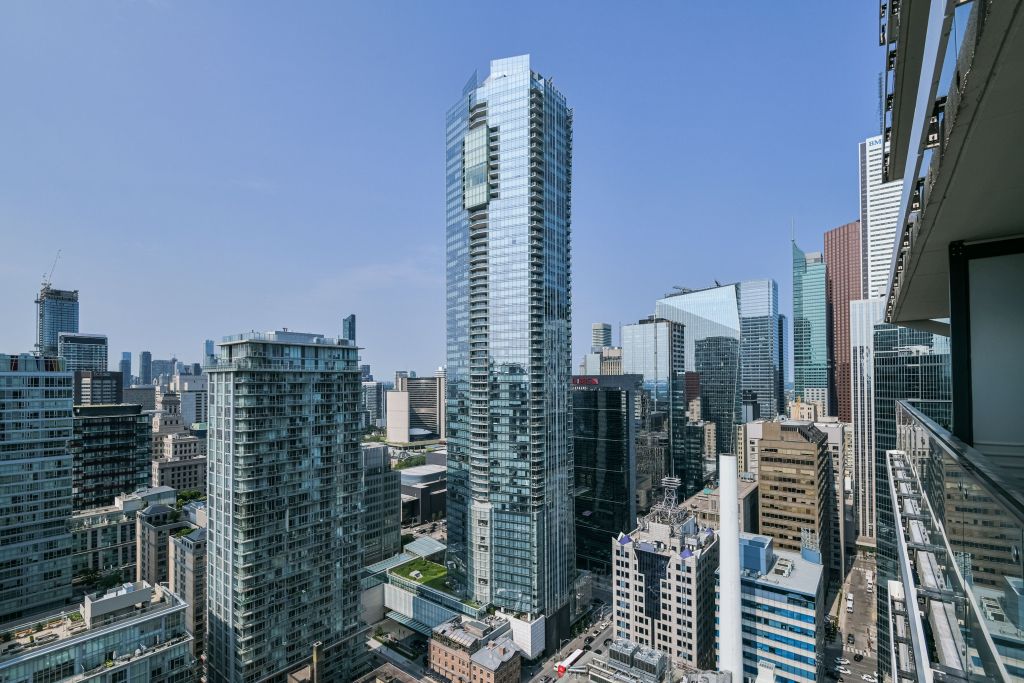
If you’ve ever made an offer on a Toronto condo—or are about to—you’ll quickly hear this term: status certificate. It might not sound exciting, but this document is a cornerstone of any smart condo purchase. It gives you (and your lawyer) a detailed snapshot of the condo corporation’s financial health, rules, and any red flags that could impact your investment.
Let’s break down what a status certificate is, what’s inside, where you can order one in Ontario, and why it matters more than most buyers realize.
What is a Status Certificate?
A status certificate is an official document issued by a condominium corporation that provides key financial and legal information about a specific condo unit and the condo corporation as a whole.
In Ontario, it’s a legal requirement under Section 76 of the Condominium Act, 1998. Condo corporations must issue one within 10 calendar days of receiving a written request and a $100 fee (HST included).
Whether you’re buying, selling, or refinancing a condo, this document is essential—it can affect offer conditions, financing approval, and even your long-term ownership experience.

What’s Inside a Status Certificate?
It’s more than just a single sheet. A typical status certificate includes:
- Declaration, by-laws, and rules of the condo corporation
- Monthly common expenses for the unit (and whether the current owner is up to date)
- Audited financial statements from the previous year
- Annual operating budget
- Reserve fund balance and funding plan (important for future repairs)
- Insurance certificate
- Details of any legal proceedings, judgments, or outstanding claims
- Whether the unit is subject to a lien
- Names and contact information for directors and officers of the condo board
This bundle helps your real estate lawyer flag issues like underfunded reserves or pending lawsuits—things that aren’t obvious from a showing or MLS listing.
Check out the podcast episode we did on all things status certificates:
Cost, Timeline, and Ordering Channels
Ordering a status certificate in Ontario is relatively straightforward. Here’s what to expect:
- Cost: $100 (HST included), set by provincial regulation
- Delivery timeline: 10 calendar days from the date of request and payment
- Format: Usually provided via secure PDF download, email, or printed hard copy
Some management firms also offer expedited service—usually within 2–3 business days—for an additional fee (often ranging from $50 to $135 extra).
Where to Order a Status Certificate in Ontario
Depending on how a building is managed, status certificates can be ordered through several platforms. Here are the most commonly used options:
- StatusCertificate.com
The most widely used service in Ontario. Many property management firms rely on this platform. Simply search by condo address and unit number, and you can order directly online. - Condo Control
Used by many Toronto buildings. If your condo is registered, you can order certificates through your resident portal. - CondoBI
Provides centralized access for condo documents. Works with affiliated management companies and allows digital payment and delivery. - Percel Property Management
Offers both standard and expedited status certificate orders. Ideal for time-sensitive transactions. - Crossbridge Condominium Services
Ontario’s largest condo manager. Ordering forms are available on individual property pages. - Wilson Blanchard
Allows status certificate requests online for buildings they manage. - CondoCafe
Used by large firms like FirstService Residential. You’ll need login credentials linked to your building. - Direct from Property Manager or Condo Board
In smaller or self-managed buildings, requests are handled manually. Contact the property manager or board directly and be prepared to send payment via cheque or e-transfer.
Why Status Certificates Matter in the Buying Process
For buyers, the status certificate is typically reviewed as part of a conditional offer—meaning your deal only proceeds if the certificate comes back clean. That review is done by your real estate lawyer, and they’re looking for:
- Evidence of a healthy reserve fund
- Any upcoming special assessments (one-time repair costs to be paid by owners)
- Legal issues involving the condo corporation
- Liens or unpaid maintenance fees on the unit
- Rules or restrictions that may affect how you use the property (e.g., pets, short-term rentals)
Sellers may also choose to proactively order one in advance to speed up the process—especially in competitive markets.
Common Questions About Status Certificates
Who pays for it?
Traditionally, the buyer covers the cost (as part of their due diligence), but some sellers may offer it upfront.
Can anyone request one?
Yes—anyone can request a status certificate as long as they provide the written request and $100 fee.
How long is it valid?
There’s no official expiry, but certificates older than 30 days are often considered outdated for legal review.
What if it’s not delivered within 10 days?
That’s a breach of the Condominium Act. While rare, your lawyer can escalate if delays occur.
Is the content negotiable?
No—the condo corporation must disclose certain information in a fixed format. It’s not something you can “amend.”
Final Thoughts
Ordering a status certificate might seem like a formality, but it can reveal a lot about the property you’re buying—or selling. In a city like Toronto where condo purchases move fast, understanding where to order one and what to look for can give you a real edge.
Think of it as your condo’s report card—and every good deal starts with doing your homework.
For more tips on buying a condo in Toronto, send us a message below!
Sources & Further Reading:










